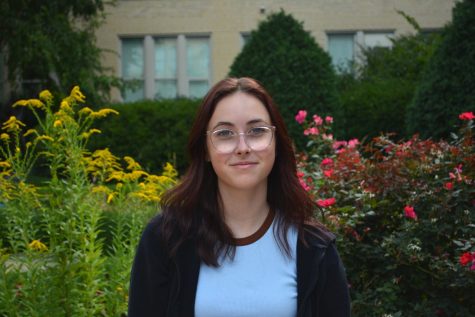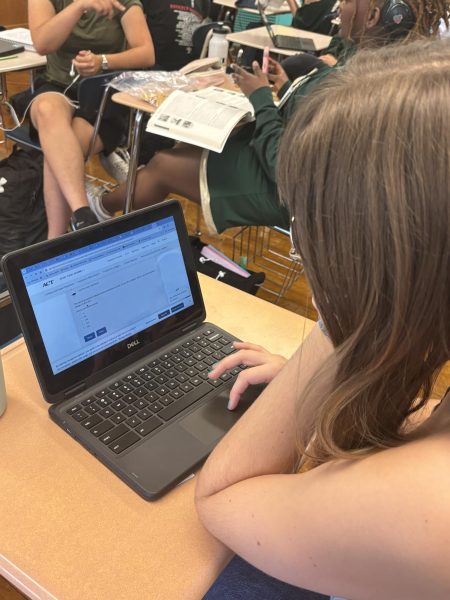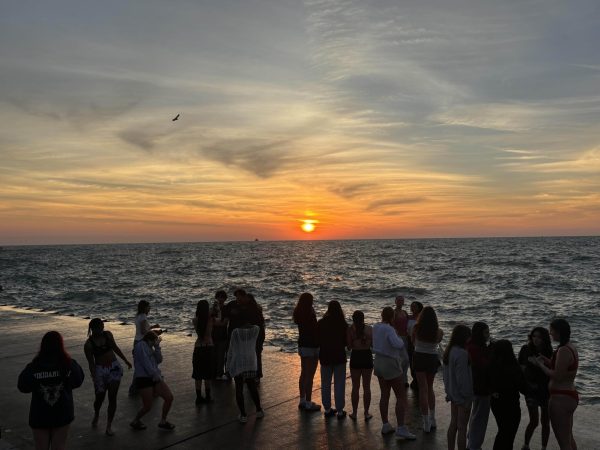Lane administrators would get collective bargaining rights with new law
A labor relations expert, the CPAA President and a Lane CTU delegate weigh in
Lane’s seven-person administrative team could join a district-wide principals union as a result of a bipartisan bill that passed in both Illinois state houses in early January. The bill was signed by Gov. J.B. Pritzker on Feb. 10.
The law amends the definition of a “managerial employee” in Chicago Public Schools to a “supervisor” who can participate in labor negotiations with CPS. Principals and administrators are barred from going on strike if they choose to join the prospective union.
Many Chicago principals and administrators, primarily represented by the Chicago Principals and Administrators Association (CPAA), have been attempting to get this law passed in what has been a years-long process that gained momentum from concerns about addressing COVID-19 in CPS, according to Chalkbeat Chicago.
Professor Robert Bruno, labor relations expert and director of the Labor Education Program at the
University of Illinois-Champaign, says the law holds potential for positive change.
“The process gives principals an opportunity to sit down and be in conversation with their school district, their superintendent, the CEO, the department heads and of course, by further extension, the school board,” Bruno said in a phone interview. “It gives them the opportunity to have that conversation about matters that are relevant to their ability to effectively oversee the school and its impact on the quality of the education and the services that students get.”
However, according to Bruno, results from this legislation are not guaranteed.
“If the parties feel like they have to hold onto power, if they don’t believe they should share, meaning that they don’t want to include others in decision-making, if they are suspicious of the other people, then it can be very difficult, because the process doesn’t guarantee an outcome,” Bruno said.
Troy LaRaviere, president of the CPAA, says this law is about holding principals accountable for what is reasonably in their control, among other concerns, including improved funding and staffing.
“Hold us accountable for what we impact, we have no problem with that. We can do that, we welcome that. But don’t hold us accountable for city hall’s failures,” LaRaviere said in reference to the metrics by which CPS administrators are evaluated, including attendance rates.
While the law does not allow newly defined “supervisors” to engage in strikes, LaRaviere says it will still empower school leaders.
“I believe the strongest leverage we have is the respect with which we’re held by the communities we serve,” LaRaviere said. “Although principals not being in the building would be somewhat disruptive and would certainly reduce the level of organization and quality of the education, it cannot have the disruptive effect that a teachers’ strike can have.”
LaRaviere said a vote to make the CPAA the primary organizing body can only happen once the bill is signed. The CPAA is in the preliminary “authorization card process,” LaRaviere told The Champion on Feb. 1. They have a 50% majority support of members, but are hoping to get a supermajority of 75%, LaRaviere said.
If a supermajority is met, LaRaviere said he will send an official request to CPS for the principals to be recognized, which he expects to be initially rejected by the district. According to LaRaviere, regardless of the recognition from CPS, the CPAA must be recognized by the Education Labor Relations Board first.
“Whether they do or don’t voluntarily recognize us, the next step is to go to the Education Labor Relations Board. If they voluntarily recognize us, the process is much cleaner and much faster. If they object for whatever reason, then it may take a month longer. But if we have 75%, at that point, it’s just a matter of time,” LaRaviere said.
Javier Payano, a delegate for the Chicago Teachers Union and a music teacher at Lane, is hopeful about what a principals union may bring to the district and Chicago as a whole.
“We’ve got a mayoral race happening, we’ve got an elected school board coming and now we’re going to have a principals union. It just gives me a lot of faith that Chicago is trending in the right direction….,” Payano said. “I’m eagerly anticipating and optimistic of what will come out of the principals being able to gather together and being able to use their voices in probably the strongest way they ever have been able to.”
Payano also said that the inter-school connections that a union provides would be useful for CPS administrators.
“I really see this as an opportunity for principals everywhere, but especially here at Lane Tech, to be able to work with other principals that advocate to really get resources and services for students that need it the most,” Payano said.
Principal Thompson did not have any official comments at the time of this article.
In an email responding to The Champion, Thompson wrote that she is “hopeful that we will continue to be supported as administrators in our district.”
Your donations directly fund the Lane Tech student journalism program—covering essential costs like website hosting and technology not supported by our school or district. Your generosity empowers our student reporters to investigate, write, and publish impactful stories that matter to our school community.
This website is more than a publishing platform—it's an archive, a research tool, and a source of truth. Every dollar helps us preserve and grow this resource so future students can learn from and build on the work being done today.
Thank you for supporting the next generation of journalists at Lane Tech College Prep!

Isabella is a senior Omega and this is her first year with The Champion. She is a member of Lane’s Stage Krew and is a Writing Center tutor. She loves...


